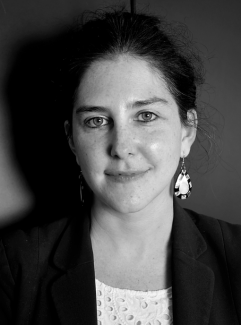EU-Mercosur: An Unsolvable Trilemma Between Competition Rules, Normative Ambitions and Supply Chain Diversification
The EU-Mercosur trade deal was believed to be heading toward the finish. The election of Luiz Inácio Lula da Silva as the president of Brazil, as successor to the right-wing populist Jair Bolsonaro, and the Spanish presidency of the European Union (EU), raised hopes for its conclusion. But the reservations expressed by several EU member states and some Latin American countries have dashed hopes.
Lula wants to conclude the agreement before the end of Brazil's Mercosur presidency. Supporters believe that this window of opportunity should be taken advantage of. But the EU's insistence on compliance with environmental standards as a condition for concluding the agreement has met with little enthusiasm in the Latin American partner states. This raises the question of whether the EU-Mercosur trade agreement negotiated in 2019 still meets the parties' expectations. Faced with a fragmented international community, exacerbated by the war in Ukraine, and growing Sino-American rivalry, the EU is looking for new trading partners with whom it shares the same values.
These agreements also echo the EU's economic security strategy presented by Ursula von der Leyen in June 2023, which emphasizes security of supply and diversification. In addition to strengthening its supply chains and reducing its dependence on the critical raw materials needed for the EU’s green transition, the EU hopes to further political cohesion with Latin America through the EU-Mercosur agreements. But there is disagreement in the EU about the EU-Mercosur trade deal: Some member states fear disadvantages for domestic agriculture. But the Mercosur countries are also increasingly demanding and threaten to turn toward China which promises to increase investment and develop trade relations with the region.
Marie Krpata is a Fellow Researcher at the Study Committee on Franco-German Relations (Cerfa) at the French Institute of International Relations (Ifri).
Ana Helena Palermo is a consultant to the President of the ZEW – Leibniz-Zentrum für Europäische Wirtschaftsforschung.
This publication is available in French and German (pdf):
GERMAN: "EU-Mercosur: Ein unlösbares Trilemma zwischen Wettbewerbsregeln, normativen Ambitionen und der Diversifizierung der Lieferketten".
>> >> See on the same topic: Klemens Kober "Towards a New European Trade Strategy in Times of Geopolitical Upheaval: The German Perspective" , Notes du Cerfa, No. 176, Ifri, October 2023 (pdf).

Available in:
Themes and regions
Share
Related centers and programs
Discover our other research centers and programsFind out more
Discover all our analysesBundeswehr: From Zeitenwende (historic turning point) to Epochenbruch (epochal shift)
The Zeitenwende (historic turning point) announced by Olaf Scholz on February 27, 2022, is shifting into high gear. Financially supported by the March 2025 reform of Germany’s “debt break” and backed by a broad political and societal consensus to strengthen and modernize the Bundeswehr, Germany's military capabilities are set to rapidly increase over the coming years. Expected to assume a central role in the defense of the European continent in the context of changing transatlantic relations, Berlin’s military-political position on the continent is being radically transformed.
Merz’ European Policy-making: The End of the ‘German Vote’?
Friedrich Merz’s European ambition is to turn Germany, long seen as hesitant into a leading actor within the European Union (EU). To that end, he has pledged to end the “German vote,” a phenomenon that epitomizes the paradox of a country both indispensable and frequently absent from European decision-making.

Securing critical raw material (CRM) value chains – a prerequisite for Europe’s technological resilience
At the heart of economic security, technological resilience is a backbone of the European Union’s (EU) competitiveness. The EU’s energy and digital transitions depend on critical raw materials (CRM).

Reconciling competitiveness and demographic change: a Franco-German imperative
France and Germany are facing parallel demographic shifts that could reshape the future of their economies and their social models. These shifts reflect broader European patterns but are magnified by the central role both nations play in EU governance and competitiveness.










